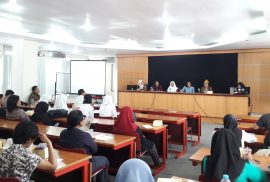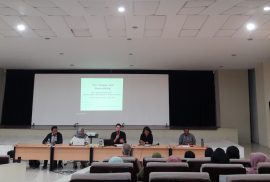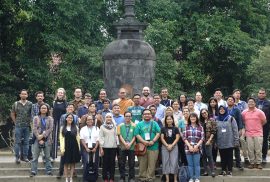‘Memory between generations’ is a point to be discussed in the discussion which took place in the Multimedia Room, Margono Building, 2nd Floor, Faculty of Cultural Sciences UGM. More specifically, the discussion which lasted for 2 hours from 13:00 to 15:00 on Wednesday, August 21, 2019, discussed the memory of the role of women during the revolutionary period. This objective is in accordance with the title given, Dialogue of Three Generations of Women on the Indonesian Revolution. To achieve this goal, three speakers and one keynote speaker, all of whom were women, were invited to participate in this event, namely Mrs. Djuwariyah, Galuh Ambar Sasi, M.A., Shinta Dwi Nugraeni, and Dr. Mutiah Amini.
August
The workshop on Monday, August 19 2019, which was held at the ISI Yogyakarta Postgraduate School was quite different from the usual History Department event. Entitled Hidden Voices: Unpacking the Jaap Kunst’s Collection on the Music of Nusantara, this workshop was held in collaboration between the Department of History, FIB UGM and the Faculty of Performing Arts, ISI Yogyakarta. As the title implies, the purpose of the workshop is to discuss possible areas of research that can be studied about the legacy of a pioneer in modern ethnomusicology studies who made Nusantara music as the object of his study.
Being a historian in the period so called as the Industrial Revolution 4.0 – with IT as the main trend, there are certainly many new challenges that must be faced, one of which is Transnational History. Transnational History is not a new thing, but nowdays, transnational become interesting issues to discuss. Placing a local or a national history as part of global history will bring its own appeal, especially for those who have an interest in transnational issues.
On July 22 – August 2, 2019, the Department of History, Faculty of Cultural Sciences, Universitas Gadjah Mada recently held a 2nd International Summer School with the theme “Becoming a Transnational Scholar of Southeast Asia”. This summer school was attended by 35 participants from various countries around the world. The involvement of the participants with different backgrounds has added value to this program. During the program participants can exchange information about history in their country with another perspectives.



